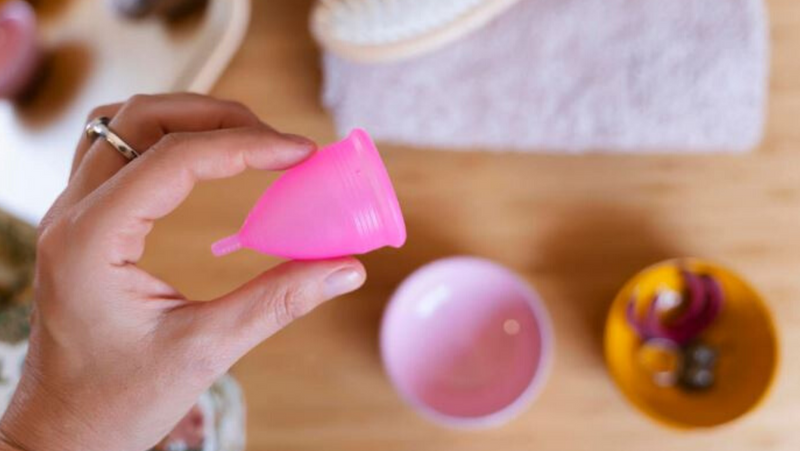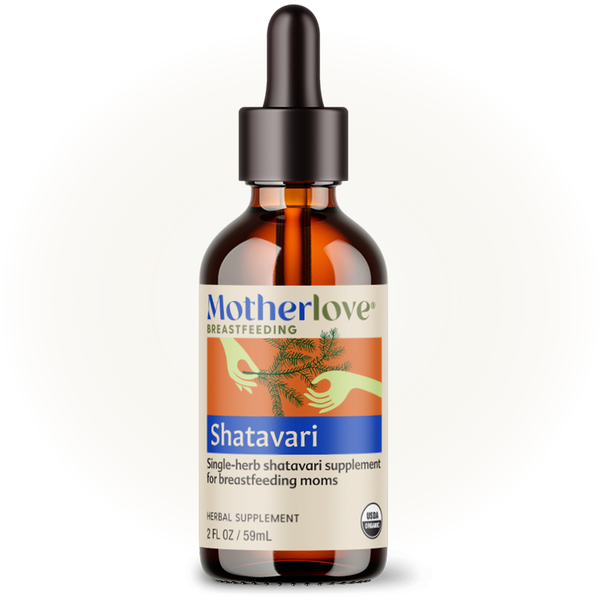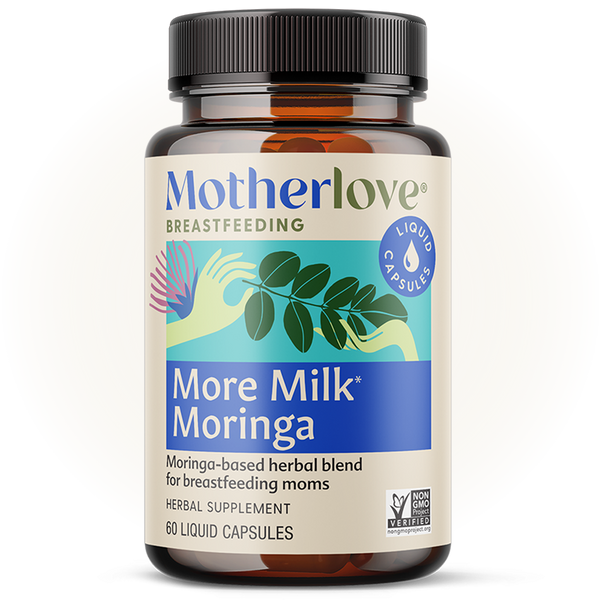Written by: Wendy, IBCLC
One of the benefits of breastfeeding that moms look forward to is that they don’t have to deal with their periods for a while. This is true, in most cases. The hormones of breastfeeding keep Aunt Flo away for at least a few months for most moms — some of us don’t get a period back for the entire time we are breastfeeding!
When your period does return, you can certainly keep breastfeeding, but many of us do notice our menstrual cycles change certain aspects of breastfeeding. Some moms may deal with a drop in milk supply right before our period arrives, and for the first day or two of our periods. While this drop is normal and temporary, it can be stressful to deal with — for both you and your baby.
Let’s look at how menstruation affects milk supply, and what you can do if this is becoming a significant problem for you.
WHEN WILL YOUR PERIOD RETURN?
All of us are different when it comes to the exact date that we start menstruating while we’re breastfeeding. Your period returning has to do with several different factors, including how often you breastfeed your baby, whether your baby breastfeeds in the middle of the night, whether your baby receives supplements besides your own milk, whether your baby takes a pacifier, and what your body chemistry is like.
For the most part, if you are breastfeeding exclusively, frequently (including at night), without supplements or pacifiers, you are unlikely to get your period back until your baby is about six months old, when breastfeeding milk slows down or solid foods are introduced. But again, this varies quite a bit. Some exclusively breastfeeding moms get their periods back at 3 months, and some don’t get it back with the entire they are nursing, which may be several years.
Important note: as soon as you get your period back, you are considered fertile. And even before you get your period back, there is a possibility you could become pregnant, because sometimes women ovulate before they get their first postpartum period. It is possible to use breastfeeding as birth control (Lactational Amenorrhea Method: LAM), but only if you are following a strict protocol of exclusive breastfeeding, you haven’t had a period yet, and your baby is under six months old.
HOW WILL BREASTFEEDING BE DIFFERENT WHEN YOUR PERIOD RETURNS?
On the whole, breastfeeding won’t change very much when your period returns. Your milk will still be healthy and wonderful for your child, and your overall supply will not be affected. However, both during the middle part of your cycle when you ovulate, and the end of your cycle, as your period nears, you may notice some changes in your experience of breastfeeding. These are due to your fluctuating hormones.
Not everyone experiences these symptoms and they may be different from cycle to cycle, but these are some of the experiences you may have as a result of your period returning during breastfeeding.
Both during ovulation and PMS, you may notice:
- Breast sensitivity that becomes more pronounced during breastfeeding
- An antsy, uncomfortable feeling
During PMS and the first 1-2 days of your period, you may notice:
- Breastfeeding aversion, sometimes severe
- A drop in your milk supply
HOW DOES THE RETURN OF YOUR PERIOD AFFECT YOUR MILK SUPPLY?
It’s usually only the 2-4 days leading up to your period and the first 1-2 days after your period starts that you will notice a drop in your milk supply. Some mothers notice a slight decrease from the time they ovulate until their period arrives, though this is less common. Whatever the case, you can blame hormones for the supply fluctuations.
Besides simply feeling less full and not leaking as often as you might usually leak, you may notice that your baby gets frustrated by the lower milk supply. Your baby might seem cranky at the breast, they may pull away frustrated, or they may want to breastfeed more frequently. This is normal behavior—and in fact, nursing more frequently is your baby’s way of ensuring that they get enough milk.
It’s very rare that your drop in milk supply will mean that you are somehow starving your baby. Remember that the drop is normal, time-limited, and your supply will rebound once you get your period.
WHAT CAN YOU DO IF YOUR MILK SUPPLY DROPS DURING YOUR PERIOD?
Some of us just grin and bear it when our milk supply drops before our periods—Some of us don’t notice enough of a significant drop for it to interfere with breastfeeding much.
However, if your baby seems especially cranky, or you are just looking for ways to support your milk supply then, there are a few things you can try:
- Increased breastfeeding and breast compressions: If your baby wants to nurse more during the PMS supply dip, let them. You can use breast compressions and massage to get your milk flowing.
- Calcium and magnesium supplements: Taken from mid-cycle till your period, calcium and magnesium supplements can help keep your milk supply steady throughout your period. Discuss dosage and safety with your healthcare provider.
- Herbal supplements: Herbals supplements may help you keep your supply up during PMS and your period. Shatavari is an Ayurvedic herb known to balance the female menstrual cycle; it may also support your milk supply if you experience a supply drop before or around your period.






